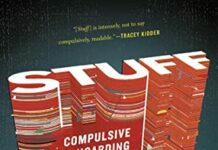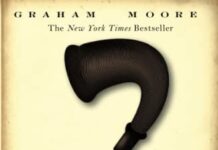
Ebook Info
- Published:
- Number of pages:
- Format: Epub
- File Size: 0.22 MB
- Authors: Aimee Bender
Description
On the eve of her ninth birthday, unassuming Rose Edelstein bites into her mother’s homemade lemon-chocolate cake and discovers she has a magical gift: she can taste her mother’s emotions in the slice. To her horror, she finds that her cheerful mother tastes of despair. Soon, she’s privy to the secret knowledge that most families keep hidden: her father’s detachment, her mother’s transgression, her brother’s increasing retreat from the world. But there are some family secrets that even her cursed taste buds can’t discern.
User’s Reviews
Editorial Reviews: Review “Moving, fanciful, and gorgeously strange.” —People “One of the year’s highlights. Intense and compelling.” —The Oregonian “Marvelous. . . . Few writers are as adept as Bender at mingling magical elements so seamlessly with the ordinary.” —San Francisco Chronicle “A richly imagined, bittersweet tale.” —Vanity Fair “Convincing and elegant. . . . A novel with a deeply involving plot, one full of provocative ideas.” —The Boston Globe “Extraordinary. . . . Not just a deeply felt novel but one of the most inventive pieces of food writing in recent memory.” —Time Out New York “Profound and eye-opening. . . . You feel—that rare and beautiful gift from a truly great book—woken up and unalone.” —The Globe and Mail (Toronto) “Rose is an irresistible narrator: warm, witty and sharply observant. . . . Exuberant, life-affirming.” —The Miami Herald “Oddly beautiful. . . . Will tempt you to see what talented writers can do when they rip little tears in the fabric of reality.” —The Washington Post “The fairy-tale elements in her writing, far from seeming outlandish, highlight the everyday nature of her characters’ flaws and struggles. In Ms. Bender’s stories and novels, relationships and mundane activities take on mythic qualities.” —The Wall Street Journal “Charming and wistful. . . . [Rose] studies her world with the thoroughness of a scientist but records her observations with the eye and ear of a poet.” —The Atlantic “The fabulist elements of The Particular Sadness of Lemon Cake are stunning, but what makes this novel a keeper is the sheer beauty of the language Bender uses to describe love.” —NPR, “Books We Like” “[The Particular Sadness of Lemon Cake] has the narrative momentum and clockwork plotting of any good mystery, but its bleak whimsy and clear-eyed rendering of domestic sorrow are Bender’s own. . . . Splendid.” —The Plain Dealer “Rose comes of age while unraveling family secrets as strangely lucid as they are nightmarish. At its core . . . The Particular Sadness of Lemon Cake encourages us all to make the most of our unique gifts while still finding a way to live in the so-called real world.” —O, The Oprah Magazine “A dreamy novel. . . . This is one of the most pleasant books we’ve read all year.” —The New York Observer “Deftly written. . . . There is a . . . sweetness to the book that turns it into something out of the ordinary.” —St. Louis Post-Dispatch “Bender is the master of quiet hysteria. . . . She builds pressure sentence by sentence. . . . A little hiss of steam comes off the novel.” —Los Angeles Times “A very special book.” —The Anniston Star “Bender doesn’t write of ordinary people. She writes of magical creations, the things of fairy tales gone awry. . . . Part magic, part clean prose.” —Denver Post “If you’ve ever wondered why people have such a hard time looking in strangers’ eyes as they walk down the street, this book, hard as it may be to face, is for you.” —LA Weekly “There’s an evocative power in Bender’s work that lingers with a reader.” —The Christian Science Monitor “[Bender] produce[s] stories that make one grateful for being ordinary.” —The Seattle Times “[A] gentle, kindhearted novel. There’s a wistful quality to the almost fable-like tale that’s captured with near perfection in her understated prose. As in all fine novels, the Edelsteins’ story, in Aimee Bender’s telling, is one that reflects our own world back to us in a fresh and revealing way.” —Bookreporter.com “The ultimate fact is that The Particular Sadness of Lemon Cake is probably the strangest book you’ll never want to put down.” —Pittsburgh Tribune “Aimee Bender creates a lilting, economical and finally tragic portrait of what it means to be a child in her exquisite new novel.” —Chicago Tribune “Lemon Cake perfectly embodies Bender’s knack for simultaneously appealing to imagination, emotion, and intellect, combining an out-of-this-world premise with very much in-this-world characters.” —Portland Mercury “Aimee Bender is also something of a sorceress who charges her stories with pure magic, and The Particular Sadness of Lemon Cake is an example of what she does best.” —Jewish Journal About the Author Aimee Bender is the author of the novels The Particular Sadness of Lemon Cake—a New York Times bestseller—and An Invisible Sign of My Own, and of the collections The Girl in the Flammable Skirt and Willful Creatures. Her works have been widely anthologized and have been translated into sixteen languages. She lives in Los Angeles. Excerpt. © Reprinted by permission. All rights reserved. It happened for the first time on a Tuesday afternoon, a warm spring day in the flatlands near Hollywood, a light breeze moving east from the ocean and stirring the black-eyed pansy petals newly planted in our flower boxes. My mother was home, baking me a cake. When I tripped up the walkway, she opened the front door before I could knock. How about a practice round? she said, leaning past the door frame. She pulled me in for a hello hug, pressing me close to my favorite of her aprons, the worn cotton one trimmed in sketches of twinned red cherries.On the kitchen counter, she’d set out the ingredients: Flour bag, sugar box, two brown eggs nestled in the grooves between tiles. A yellow block of butter blurring at the edges. A shallow glass bowl of lemon peel. I toured the row. This was the week of my ninth birthday, and it had been a long day at school of cursive lessons, which I hated, and playground yelling about point scoring, and the sunlit kitchen and my warm-eyed mother were welcome arms, open. I dipped a finger into the wax baggie of brown-sugar crystals, murmured yes, please, yes. She said there was about an hour to go, so I pulled out my spelling booklet. Can I help? I asked, spreading out pencils and papers on the vinyl place mats.Nah, said Mom, whisking the flour and baking soda together.My birthday is in March, and that year it fell during an especially bright spring week, vivid and clear in the narrow residential streets where we lived just a handful of blocks south of Sunset. The night-blooming jasmine that crawled up our neighbor’s front gate released its heady scent at dusk, and to the north, the hills rolled charmingly over the horizon, houses tucked into the brown. Soon, daylight savings time would arrive, and even at nearly nine, I associated my birthday with the first hint of summer, with the feeling in classrooms of open windows and lighter clothing and in a few months no more homework. My hair got lighter in spring, from light brown to nearly blond, almost like my mother’s ponytail tassel. In the neighborhood gardens, the agapanthus plants started to push out their long green robot stems to open up to soft purples and blues.Mom was stirring eggs; she was sifting flour. She had one bowl of chocolate icing set aside, another with rainbow sprinkles.A cake challenge like this wasn’t a usual afternoon activity; my mother didn’t bake all that often, but what she enjoyed most was anything tactile, and this cake was just one in a long line of recent varied hands-on experiments. In the last six months, she’dcoaxed a strawberry plant into a vine, stitched doilies from vintage lace, and in a burst of motivation installed an oak side door in my brother’s bedroom with the help of a hired contractor. She’d been working as an office administrator, but she didn’t like copy machines, or work shoes, or computers, and when my father paid off the last of his law school debt, she asked him if she could take some time off and learn to do more with her hands. My hands, she told him, in the hallway, leaning her hips against his; my hands have had no lessons in anything.Anything? he’d asked, holding tight to those hands. She laughed, low. Anything practical, she said.They were right in the way, in the middle of the hall, as I was leaping from room to room with a plastic leopard. Excuse me, I said.He breathed in her hair, the sweet- smelling thickness of it. My father usually agreed with her requests, because stamped in his two-footed stance and jaw was the word Provider, and he loved her the way a bird-watcher’s heart leaps when he hears thecall of the roseate spoonbill, a fluffy pink wader, calling its lilting coo-coo from the mangroves. Check, says the bird-watcher. Sure, said my father, tapping a handful of mail against her back.Rah, said the leopard, heading back to its lair.At the kitchen table, I flipped through my workbook, basking in the clicking sounds of a warming oven. If I felt a hint of anything unsettling, it was like the sun going swiftly behind a cloud only to shine straight seconds later. I knew vaguely that my parents had had an argument the night before, but parents had arguments all the time, at home and on TV. Plus, I was still busily going over the bad point scoring from lunch, called by Eddie Oakley with the freckles, who never called fairly. I read through my spelling booklet: knack, knick, knot; cartwheel, wheelbarrow, wheelie. At the counter, Mom poured thick yellow batter into a greased cake pan, and smoothed the top with the flat end of a pink plastic spatula. She checked the oven temperature, brusheda sweaty strand of hair off her forehead with the knob of her wrist.Here we go, she said, slipping the cake pan into the oven.When I looked up, she was rubbing her eyelids with the pads of her fingertips. She blew me a kiss and said she was going to lie down for a little bit. Okay, I nodded. Two birds bickered outside. In my booklet, I picked the person doing a cartwheel and colored her shoes with red laces, her face a light orange. I made a vow to bounce the ball harder on the playground, and to bounce it right into Eddie Oakley’s corner. I added some apples to the wheelbarrow freehand.The room filled with the smell of warming butter and sugar and lemon and eggs, and at five, the timer buzzed and I pulled out the cake and placed it on the stovetop. The house was quiet. The bowl of icing was right there on the counter, ready to go, and cakes are best when just out of the oven, and I really couldn’t possibly wait, so I reached to the side of the cake pan, to the least obvious part, and pulled off a small warm spongy chunk of deep gold. Iced it all over with chocolate. Popped the whole thing into my mouth. Read more
Reviews from Amazon users which were colected at the time this book was published on the website:
⭐First of all, the idea of the emotions of the cook infusing the food is not new. It was borrowed from Like Water For Chocolate. But I could think of all kinds of fun things the author could have done with this to take the idea to a new level. But no. On top of that, the thing with the brother was not clear, the thing with the father went nowhere–two more big story opportunities left lacking. Just not a well written book. I stuck with it to the end hoping it would somehow come together but it ended up being entirely unsatisfying.
⭐This book seemed unfinished, both in the ending and in the story telling. The absence of conversational punctuation was distracting and off-putting. I tried to get into a character’s skin, and it was almost impossible to find common ground with any of them because they were portrayed as too vague and abstract. I realize the story is full of metaphors and innuendos, but the author really didn’t provide enough details into the character behaviors to give the story flow and have it make sense. I could definitely fill in the blanks with my imagination and own conclusions because the basis of the storyline and tiny pieces given throughout the story were intriguing, but there was nothing solid to hold on to or keep it moving. Maybe that was the point? I came away confused, disappointed, and wish I could get my money and time back.
⭐Quick Read. Interesting Concept. The language/syntax was sometimes off-putting. The book fell a bit flat at the end. It left me very unsatisfied with almost every aspect of the book…MC, other characters, ending, etc*Spoilers*I did enjoy reading this book due to the curiosity I had with what our MC was going to become/what she would do with her ability. However, her lack of goals/a overall motive was a bit grueling throughout the read. Also, I can see where the author was going with the hospital moment with Joseph but it didn’t work because there wasn’t enough to their relationship.Joseph is an interesting character, I will say but it wasn’t enough.Her relationships with everyone else were interesting… but again not enough.It left me thinking, ‘okay, now what?’.I gave it 3 stars because the read itself was good, quick and interesting.
⭐I don’t know how this has so many stars. It is very boring, but has just enough intrigue to make you think something is going to happen. It doesn’t. And the ending sucks. It just stops. I thought my kindle was having an issue. Nope. Just ends in a place that shouldn’t be the end. I never pay full price for books so I’m ticked that I did. I wish I could get my money back. This had the potential to be so much more…
⭐I got a bad print job on the book that was delivered to me so I had to return. I went on to buy the book at a local bookstore to finish and wish I would not have. What a useless waste of time. I found this book more than borning and fell asleep multiple times trying to get through it and I love to read!!!! This story drags on and on and goes nowhere. Never again will I buy from this author, I had such high hopes, I mean look at that cover!
⭐I really enjoyed reading this book. It made me consider the inner world of emotions and how it affects the people around us, and how they affect us. The haunting truth about how deeply some people experience certain emotions, how much pain they carry around inside, and how difficult it can be for them to cope with simple things culminates in shocking life choices by some characters in the story. It is a very real and difficult dilemma: choose to experience/feel intensely and take the pain with it, or choose to be blunted and ignore the pain, but also miss out on some amazing surprises in life. This book gets the reader to think, consider and question, and hopefully come to the conclusion that life is beautiful, emotions are a very tangible part of our being, and our loved ones are priceless.
⭐This book was compelling from the beginning. I couldn’t wait to read what conclusions Rose drew from each culinary adventure. Bender writes so lyrically & with such good pacing that you almost forget that you’re reading and feel like you’re watching a movie. The complexities Rose shares with her brother were intriguing as well. I couldn’t figure out what went on with him until the end. That’s good writing!
⭐Rose is turning nine and appears to be living in your standard middle class family. When one begins to look closer, however, cracks start to appear. Her mother seems to suffer from manic episodes, getting extremely excited about a job or project, and then gradually losing interest over time. Her father seems a bit distant, and her brother, Joseph, is highly intelligent, with a one track mind on science. While her mother is on a cooking kick, she makes a lemon cake with chocolate frosting for Rose, and to her horror, Rose can taste all of the negative emotions that her mother had while making the cake. While her brother does not believe her, his one friend, George, equally brilliant in science, but with an outgoing personality, believes her and takes her to the local bakery to try cookies to test out her ability. She finds that this talent is not limited to creations from her family, but extends to anything made by human hands. Coming to grips with this at her young age is challenging, causing her to come up with strategies to find things she is able to eat, and avoiding being labeled as having an eating disorder in the process. As the novel progresses, Joseph withdraws more and more from social interactions, and certain events and descriptions of her family history cause Rose to wonder if she is the only one with an unusual gift. George becomes her touchstone, but her emotional distance tends to keep them apart. As Rose grows up, she finds ways to make her gift more tolerable, and at times, even enjoyable. But while she moves forward, we see the rest of the family, particularly Joseph lose ground. Overall, this was an intriguing, somewhat sad tale with some unusual quirks along the way.My one critique would be the lack of quotation marks to denote external versus internal dialogue in the story.
⭐This book, having been recommended by the Richard and Judy Book Club, was a great disappointment. It centred on a family with “special” talents but these were so ridiculous that it defied belief. I disliked it intensely, and found some parts extremely uncomfortable reading. The end was weak, so much so that I was surprised to turn the last page and find the Acknowledgements, as I hadn’t realised it was coming to an end. Another pet hate of mine is a book which has no speech marks – why is this?. If it had not been my Book Club. book I would have given up on it.
⭐I fired the beginning of the book. I found it hard at first to get into Aimee Bender style of writing, but it grew on me.The story of the girl is very well exposed and her talent, which takes over her life, shapes her formative years. I recommended it.And then it fizzled, got nowhere. The talent is wasted (tiny bit of hope for it maybe at the end) the brother is wasted, the mother relationship is wasted, the father relationship is wasted. Her studies are wasted, her life is wasted.If anything is left a very bitter aftertaste. I really did not enjoy the second half when nothing happens or nothing is developed, feelings are just brushed under the carpet, words on the page for no reason. I did not enjoy the part about the brother, I felt it could have gone somewhere but did not. A very slight redemption in the last chapter.I guess would make a great short story but cannot be stretch to a novel
⭐First I was intrigued by the title and the concept. I’ve always been fascinated by how brain works and this concept is quite similar to synaesthesia. Well, I’m not trying to talk about how scientifically this book means for me. I am baffled why people just don’t accept the book as it is rather than mentioning “it doesn’t make sense. It’s weird…”. The book is fictional and it doesn’t have to be real. You can just be open-minded and enjoy the book , feel how the writer trying to describe characters with beautiful words. I couldn’t put the book down. The ending was confusing for me and it was quite hard to figure out the meaning behind it. But I still loved it. I could feel the sadness and frustration of characters. I will try Aimee’s other books!
⭐From the blurb and title I was expecting to enjoy this book. The idea of it is brilliant – A little girl who can taste emotion in the food she eats. Unfortunately the telling of the story was flat, I was always waiting for something to happen and it does – adultery, loss, anxiety, love. A little girl having to deal with adult emotions from a young age but it so badly written that I was not absorbed in the story and left disappointed that such a good idea has been so badly executed. For a book about emotion it does not describe or invoke feelings very well at all as there is no depth in the writing. There is a hint of magic in the story A family with “gifts” which could have been expanded on but that like most of the “events” in the book it feels like it was thrown in as an afterthought and not developed. I would not recommend this book to friends
⭐At the age of nine, Rose finds that she can taste the emotions of the cook in whatever food she eats. In doing so she learns more about people than she would like to know, and sometimes beyond what a child of 9 should know about.We follow her and her family during the course of a dozen years or so as she gradually learns how to cope with her gift.I found the book well written. We learn that Rose’s family is by no means ordinary on the inside, and I found the relationship between Rose and her father quite poignant. So much not being said, and yet connections being made.
Keywords
Free Download The Particular Sadness of Lemon Cake in Epub format
The Particular Sadness of Lemon Cake Epub Free Download
Download The Particular Sadness of Lemon Cake Epub Free
The Particular Sadness of Lemon Cake Epub Free Download
Download The Particular Sadness of Lemon Cake Epub
Free Download Ebook The Particular Sadness of Lemon Cake





